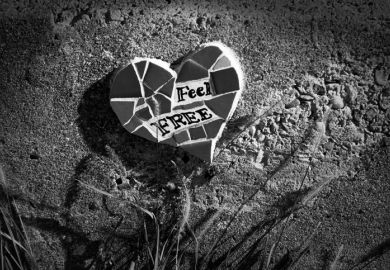Latin America's long history of military rule has produced more than one breed of soldier-statesman. While Generals Pinochet or Galtieri conform to the more familiar type of bemedalled dictator, instinctively reactionary and protective of the status quo, another sort of "providential" leader has occasionally emerged from the region's barracks. Usually of humble origins, often espousing a brand of radical nationalism, these reforming caudillos have tended to step into the void left by the breakdown of civilian politics or chronic economic mismanagement with a vision of national renovation and social justice. General Velasco in Peru was one such politicised officer, promising long-overdue land reform to the impoverished peasantry when he overthrew a civilian government in 1968.
Ex-colonel Hugo Ch vez, the president of Venezuela, is in some respects the latest in a line of military reformers. He expresses the conventional contempt for traditional political parties, tainted by corruption and incompetence, and promises honesty and effective government. He speaks of giving rights to the poorest, most marginalised citizens and inveighs against the wealthy elite. In Venezuela, where enormous oil wealth has always been squandered or simply stolen, such language has earned him great popularity. In a country where old-fashioned two-party politics has abruptly disintegrated, the "non-political" populist is greeted as a national saviour by the many and viewed with considerable alarm by the few.
Yet Ch vez, as Richard Gott's readable profile makes clear, is no ordinary caudillo . His overwhelming election victory in December 1998 has given him a solid democratic mandate, reinforced by subsequent referendums on constitutional reform. Indeed, he is more adept at electioneering than at coup-mongering, as the putsch that first brought him to public prominence in 1992 was a fiasco, collapsing ignominiously through logistical incompetence.
But the botched coup won the young officer many admirers, especially when he appeared on television to say that the rebellion was over por ahora - for the time being. Another large part of Chávez's appeal derives from his constant allusion to Simón Bolívar, the architect of Venezuelan independence. This may appear strangely anachronistic to outside observers, but for Venezuelans the memory of "the Liberator" evokes a potent strain of patriotism.
But what of Chávez in power? Gott is sympathetic to his ambitious plan to reverse the rural-urban drift by resettling slum dwellers in Venezuela's empty hinterland. He also approves Chávez's intention of reducing the country's dependence on petroleum by regenerating the agricultural sector. Indeed, Gott makes no secret of his admiration for the individual as well as his aspirations, and little space is allotted to those commentators who suspect that Chávez's democratic credentials may yet be found want-ing. But for the time being, at least, Chávez's main claim to fame and obloquy resides in his overhaul of Organisation of Petroleum Exporting Countries and the ensuing world petroleum price rises that have triggered our own "fuel rebellions".
James Ferguson is a freelance journalist specialising in Latin America and the Caribbean.
In the Shadow of the Liberator: Hugo Chávez and the Transformation of Venezuela
Author - Richard Gott
ISBN - 1 85984 775 7
Publisher - Verso
Price - £18.00
Pages - 246
Register to continue
Why register?
- Registration is free and only takes a moment
- Once registered, you can read 3 articles a month
- Sign up for our newsletter
Subscribe
Or subscribe for unlimited access to:
- Unlimited access to news, views, insights & reviews
- Digital editions
- Digital access to THE’s university and college rankings analysis
Already registered or a current subscriber? Login



